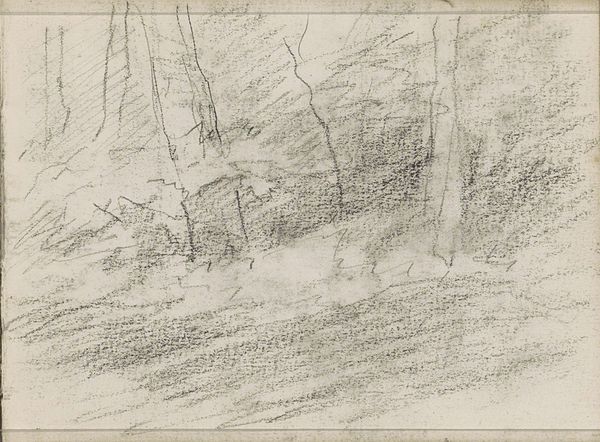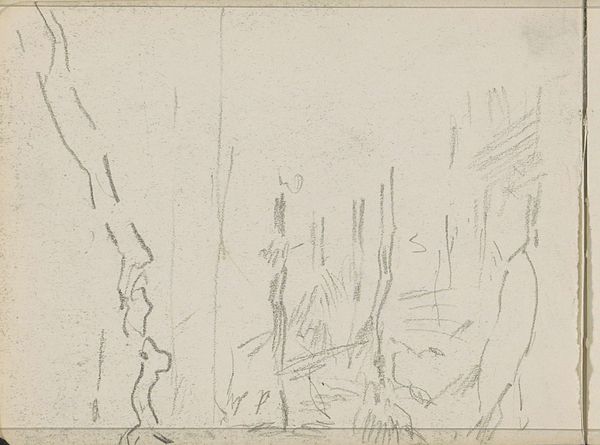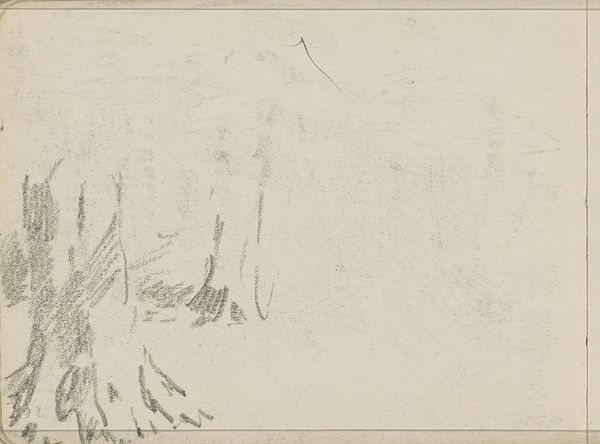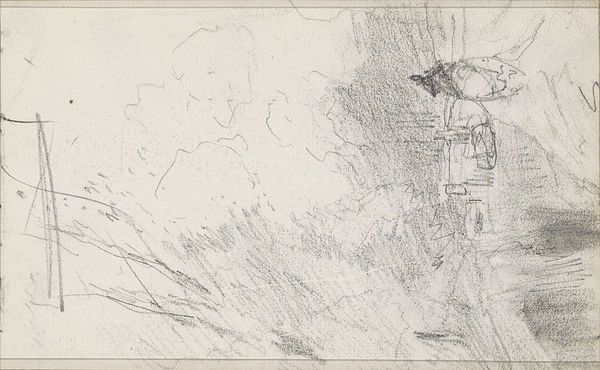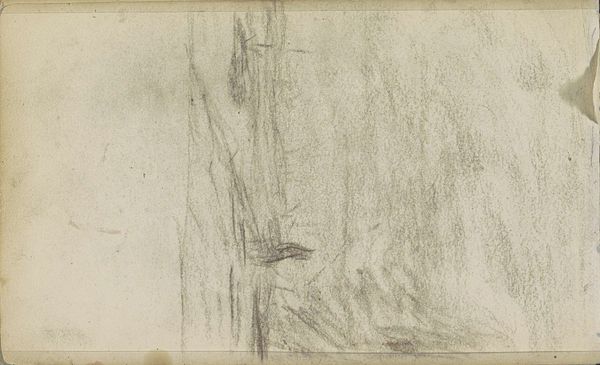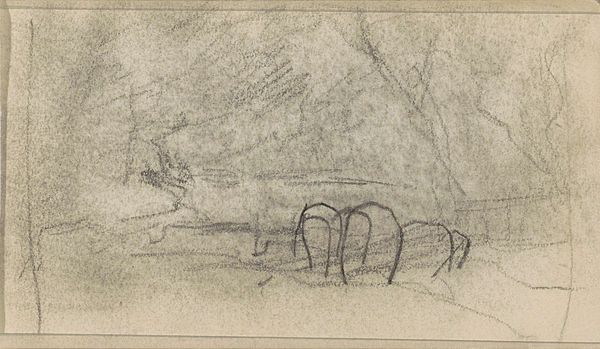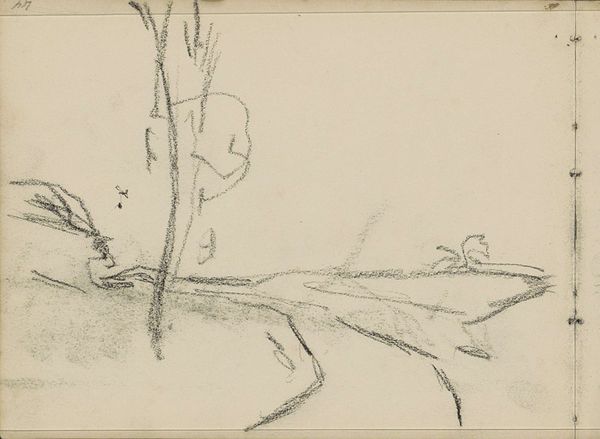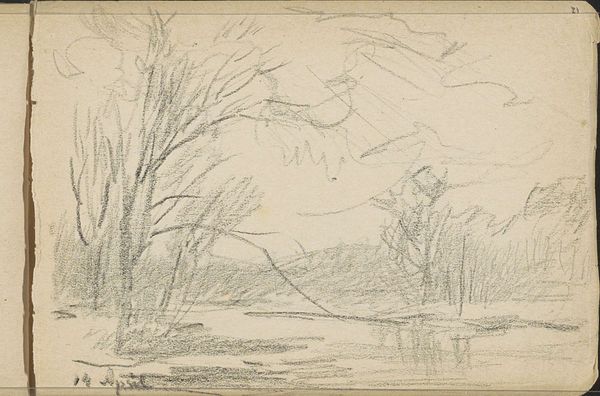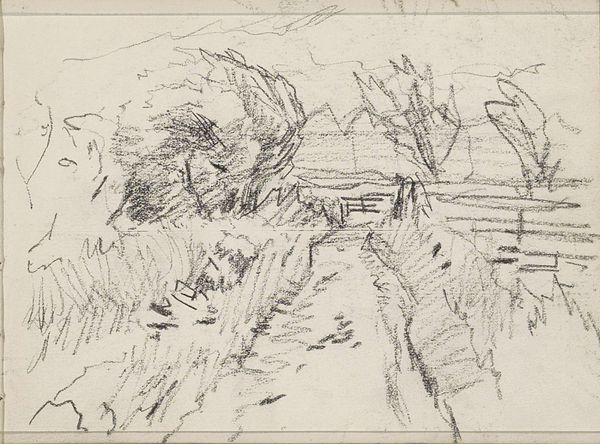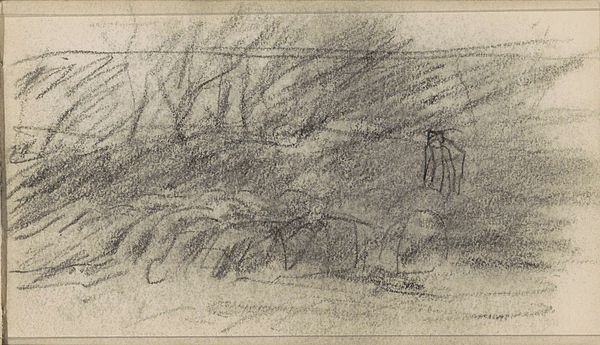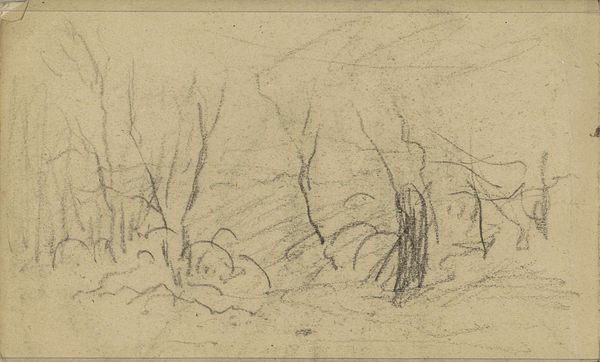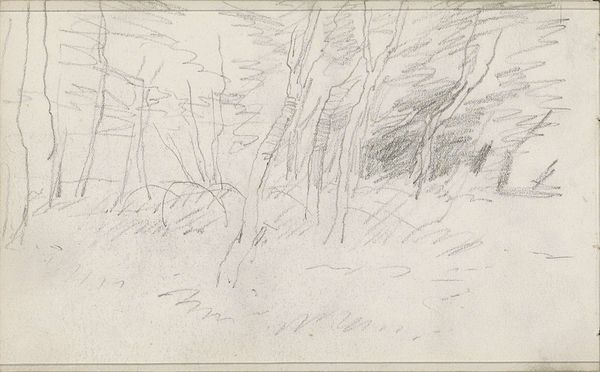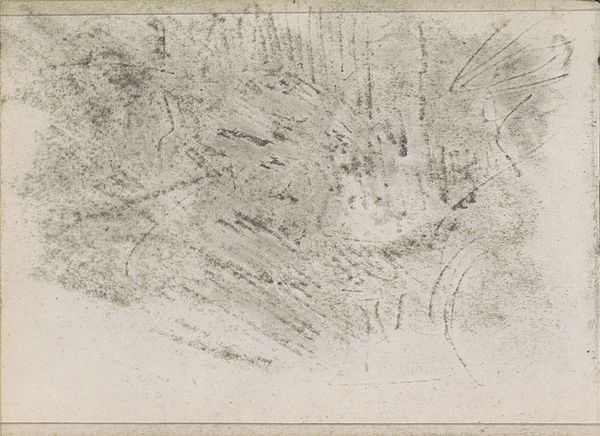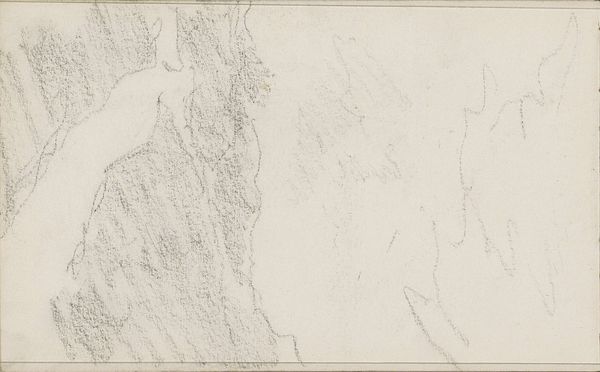
drawing, pencil
#
drawing
#
pencil sketch
#
landscape
#
pencil
#
realism
Copyright: Rijks Museum: Open Domain
Editor: Here we have "Landschap" by Anton Mauve, made sometime between 1848 and 1888. It's a pencil drawing currently held at the Rijksmuseum. There's something very raw and immediate about the sketch; the scene is only barely defined. What can you tell me about it? Curator: Well, seeing as it's housed in the Rijksmuseum, we should place it in the context of 19th-century Dutch art. Mauve was a prominent figure in the Hague School. This sketch, though seemingly simple, reflects the movement’s focus on capturing the atmosphere and rural life of the Netherlands, away from the academic styles prevalent at the time. Notice how the sketch, although fleeting, emphasizes the textures and shapes of nature. Does it remind you of anything? Editor: I suppose it has the same subdued palette as other Hague School artists. But I would almost call this Realism. It's so immediate, so unrefined. Do you think this was intended as a finished work? Curator: That's a great question. Given the period, it's likely a study. Artists often sketched outdoors, *en plein air*, as preparation for larger paintings. Consider this a form of visual note-taking, directly influenced by the burgeoning Realist movement. Mauve likely aimed to record specific elements or atmospheric conditions to bring back to the studio. The sketch also reveals the artist's hand and thought process; what he deemed most important to capture in that fleeting moment. The trees, for instance. They’re gestured with a distinct, rhythmic energy, giving weight to the landscape. Editor: So, in a way, even a seemingly unfinished sketch provides insight into artistic practice and the broader art world? Curator: Exactly. It offers a glimpse into the artist's intentions and how artistic movements adapted to cultural and social changes of the era. By considering where art is made and housed we can learn even more. Editor: That's amazing. I never considered the socio-political weight of a sketch like this before.
Comments
No comments
Be the first to comment and join the conversation on the ultimate creative platform.
